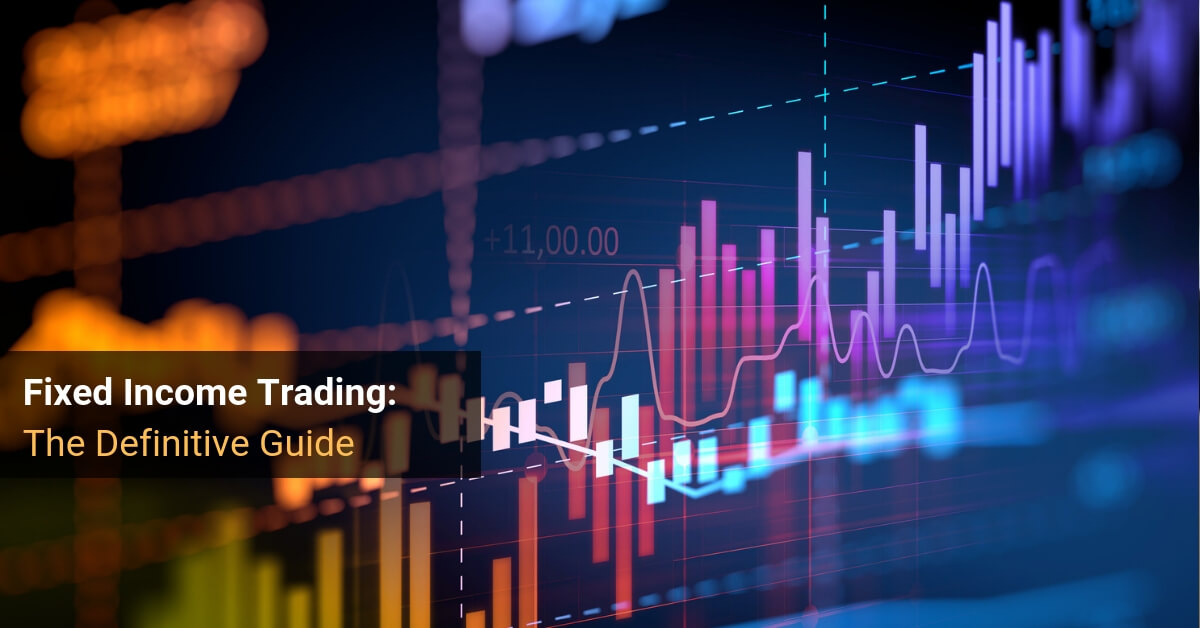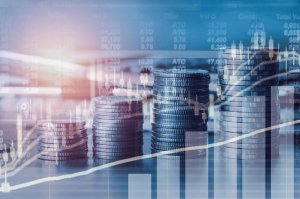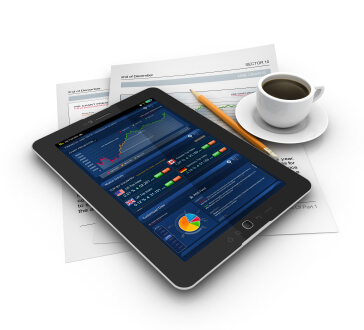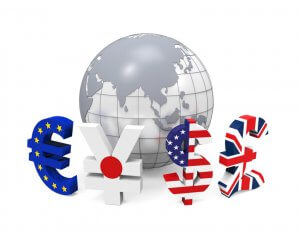Fixed Income Trading: The Definitive Guide

Ask the average person what “Fixed Income Trading” means, and you’ll probably get pointed to a pension statement or a stack of social security checks because you mentioned the phrase “Fixed Income”.
Ask a banker, though, and you’ll probably hear, “Everything that isn’t Equities” – which is a more apt description at a bank.
“Fixed Income” or Fixed Income, Currencies, and Commodities (FICC) includes a huge range of different desks and is harder to generalize than Equity Trading.
FICC groups at banks employ more people and generate more revenue than Equities groups, and they may offer advantages in terms of the work and exit opportunities – if you make it in:
What is Fixed Income Trading?
We covered the basics in our feature on Equity Trading, but banks make money from agency trades and making markets for clients.
Agency trades are simple trade executions at market prices that incur a fee; by contrast, “making a market” means that the trader helps a client buy or sell securities at a set price that both sides agree upon.
If it’s a buy order, this price might be above the market price of the securities.
For example, a hedge fund professional might want to buy 10,000 individual bonds in a company’s issuance for a fixed price.
The face value of each bond is $1,000, the current market value is $980, and you, the Fixed Income Trader, might offer to buy the bonds at $970 and sell them at $990 (a “bid-ask spread” of $970 – $990).
The hedge fund investor likes this price of $990 because he could not normally get that price for this quantity of bonds.
He places a trade with you, and you are now “short” those 10,000 bonds at $990.
To make money, you’ll have to buy 10,000 bonds for less than $990, and you can’t place the entire order at once, or you’ll drive up the price from the current market value of $980.
So, you must divide this trade into smaller pieces, buy portions from different parties over time, and also earn something from commissions and fees.
This example uses corporate bonds, but Fixed Income also includes government bonds, credit-related derivatives, money markets, mortgage-backed securities, and more.
The name “Fixed Income” isn’t even accurate because this area also includes currencies and commodities, neither of which generate income in the same manner.
As we suggested above, it’s best to think of this group as “making markets for clients in everything that isn’t equities or equities-related.”
Fixed Income Sales vs. Fixed Income Trading vs. Structuring vs. Strategy

Many articles pretend that “Sales & Trading” just means “Trading.”
But Sales is a separate division from Trading, and the two are quite different; trading is more about the execution of orders and market-making for clients, while sales is about developing client relationships, pitching ideas to clients, and representing the firm on important business issues.
As with Equities, salespeople must understand the fundamentals of the products they sell, but they don’t need to be math wizards.
Many banks divide their sales desks into two groups – “Institutions” and “Corporates.” Institutions focuses on hedge funds, pension funds, and mutual funds, while the Corporates group focuses on non-financial companies looking to hedge their exposure to market risks via derivatives.
Sales is suitable for outgoing, social people who like to read and talk about financial markets, while trading is a better fit for those who like math and can thrive with a quick, decision-making mindset.
You could also say that Structuring is a separate team within Fixed Income, given the complexity of some products.
Structurers have a more math-oriented job than traders because they create the custom securities that clients often use for specific needs, such as reducing volatility by 15% for a certain trading strategy.
The key difference is that Structurers work on longer-term projects rather than the day-to-day work that most traders spend their time on.
Finally, Strategy is a separate group in some markets divisions. If you’re in this team, you’ll develop investment recommendations for Fixed Income securities based on market fundamentals and technical research.
Will Fixed Income Trading Get Automated or Displaced?
The rule of thumb that we presented for Equity Trading holds true here as well:
“The simpler and more liquid a security is, the more likely it is to be automated; the less liquid and more complex it is, the less likely it is to be automated.”
The good news is that many Fixed Income products are complex; the bad news is that simpler areas such as investment-grade corporate bonds are still being automated.
And some of the products, such as cash FX, are even easier to automate.
Humans will probably not disappear completely, but if you want to work in trading or structuring, it’s in your best interest to gain knowledge of programming and data science.
Even if you’re in sales, knowledge of quant research and algorithms will be helpful and, eventually, essential.
Fixed Income Sales and Trading Recruiting and Interviews

The process for Fixed Income recruiting is largely the same as it is for Equities: expect an online application, video or on-campus interview, and a Superday (U.S.) or ticket to an assessment center (U.K.).
We covered assessment centers for sales & trading in a previous article on the rates trading desk, and we published a whole series on sales and trading interview questions (and the “fit” questions), so there is not much to add there.
A few differences in Fixed Income interviews include:
- More Focus on “The Macro” – Since FICC includes products such as FX, commodities, and government bonds, you’ll get more questions about GDP, interest rates, yield curves, inflation, monetary policy, exchange rates, and so on. You must understand how these factors influence the markets.
- Math/Programming Knowledge is Important… to a Point – If you’re a salesperson or trader, you’re still not going sit around solving partial differential equations all day. Yes, some Fixed Income products are more complex, but you’ll be responsible for the execution. So, it’s a good idea to take math and CS classes, but you don’t need to win the International Math Olympiad to join the group.
- Product Knowledge – For Fixed Income, it’s best to research a product that is “in the middle” in terms of complexity. For example, pick something more complex than cash FX, but less complex than a structured credit product; credit or interest rate derivatives might be good to discuss.
We cover Fixed Income concepts in the Investment Banking Interview Guide and Core Financial Modeling course, but we focus on corporate bonds; the material is not targeted specifically at sales & trading.
That said, it’s still helpful as an introduction, especially if you’re applying to more than just S&T roles.
And if you want more in-depth coverage of topics such as convertible bonds and advising companies on their refinancing options, the Advanced Financial Modeling course has detailed case studies:
Advanced Financial Modeling
Learn more complex "on the job" investment banking models and complete private equity, hedge fund, and credit case studies to win buy-side job offers.
learn moreIf you want to learn more about the points above, we also recommend the following resources:
- Bloomberg: Lessons on Fixed Income (if you have Bloomberg access).
- Reference: JP Morgan Guide to the Markets – Section on Fixed Income
- Reading: Frank Fabozzi’s classic reference on Fixed Income
- Networking: Fixed Income Analysts Society
Fixed Income Products and Different Desks within Fixed Income Trading
There are many different desks within Fixed Income, so it’s much harder to generalize than Equities.
Therefore, we are not going to describe every single desk, group, and sub-group here.
Instead, we’ll focus on the most common desks and touch on the major themes:
Credit Trading: Rates

You’ll find our feature on the rates trading desk helpful, so you should refer to that for all the details.
In short, the rates desk trades sovereign (government-issued) bonds, interest rate swaps and futures, and structured products based on rates, options and swaps, and others.
This desk is very macro-focused because interest rates drive the prices of government bonds and other products here, and everything from economic growth to trade and monetary policy to exchange rates could affect interest rates.
As a junior trader, you’ll spend a lot of time predicting changes in the interest rate curve and using that to price securities.
Rates products tend to be more complex and are, therefore, harder to automate, but you’ll still have an advantage in this group if you have computer science skills.
The rates desk could be a good fit for you if:
- You’re comfortable with risk and you can work in intense environments.
- You want to complete day-to-day tasks rather than longer-term projects.
- And you like some math with plenty of macro analysis.
Credit Trading: Municipal Bonds (“Munis”) or “Public Finance”

Municipal bonds are ones issued by local governments such as states, counties, and cities rather than the federal government.
Interest on municipal bonds issued in the U.S. can be [triple] tax-exempt, meaning that the bond is exempt from federal, state, and city taxes – which happens if the buyer of the bond lives in the same area as the issuer.
As a result, you’ll spend a lot of time analyzing the tax-exempt yield curve and comparing it to the taxable one.
Municipal bonds have the same characteristics as other bonds: yield, coupon, maturity date, and credit rating, and you can find issuances covering almost every time horizon.
Local trends, such as population metrics, demographics, tax collection, non-tax revenue sources, and property values make a big impact on the creditworthiness of the issuer, which, in turn, drives municipal bond prices.
Think of it as “macro analysis on a micro level” and a compromise between other desks in Fixed Income trading.
In theory, municipal bonds are “safe,” but in practice, plenty of municipalities have gone bankrupt and repaid bondholders far less than what they were owed (e.g., Detroit – Michigan and Stockton – California).
On the sales side, many ultra-high-net-worth (UHNW) clients like to buy municipal bonds for tax purposes, so you’ll often work with these individuals and mutual funds, especially on the “short end of the yield curve” (i.e., yields that are less than one year).
On the other end of the yield curve, insurance companies, specialty buyers, and retail investors are more active.
If you want to learn more, MunicipalBonds.com provides a screening filter and plenty of articles about the municipal bond markets.
Credit Trading: Corporate Bonds and Credit Default Swaps (CDS)

Traders in this area buy and sell bonds issued by companies; groups are often split into investment-grade bonds (a BBB- rating or higher from S&P / Fitch) and high-yield bonds (lower than a BBB- credit rating).
Since most companies have a significantly higher risk of default than governments in developed countries, corporate-bond yields are higher to compensate for the risk.
You spend much of your time in this group analyzing companies’ credit profiles and looking at numbers such as the Interest Coverage Ratio (EBITDA / Interest Expense) and Leverage Ratio (Debt / EBITDA) in different scenarios to “stress test” firms.
You can value bonds by assessing the default probability of the firms that issue them and then comparing the coupon rates on bonds to prevailing market rates.
Credit Default Swaps (CDS) are derivatives based on corporate bonds that separate the risk of default from interest-rate risk; they’re a bit like “insurance” on bonds.
Since the values of corporate bonds and CDS are closely linked, banks tend to combine these two groups, with corporate bonds acting as the “cash” product for this desk and CDS acting as the “derivative” product.
Investment bankers also use the CDS “spread,” or the cost of insuring a unit of debt, to estimate the Cost of Debt in corporate valuations.
Of all the desks within FICC trading, the corporate bonds one is the most micro-oriented.
While you do need to be aware of broader economic happenings and monetary policy, company-specific events tend to make a bigger impact on corporate bond prices.
It’s also the group that’s most similar to the Debt Capital Markets and Leveraged Finance teams in investment banking since you do credit analysis in both.
So, if you’re interested in analyzing individual companies from a credit perspective, but you want to work in the markets rather than on large deals, the corporate bonds desk could be a good fit for you.
Some banks are automating corporate-bond trading and switching to electronic systems, but this has happened at a slower pace than in Equities.
Small orders (e.g., under $5 million) are fairly easy to fill electronically, but much larger block trades still require human relationships – so human traders on this desk will continue to exist in some form, even if their jobs involve more coding.
Foreign Exchange (FX) or Currencies

As the name implies, you make markets in currencies here.
The foreign exchange market is far bigger than the ones for Equities and traditional Fixed Income products, and the U.S. Dollar is the most heavily traded currency.
All forex contracts are quoted in pairs, so a trader might bet on the USD rising or falling relative to the EUR (the USD/EUR “pair”).
Forex rates are affected by nearly everything – inflation, interest rates, current account deficits, government debt, trade policy, and overall economic growth – so the analysis is squarely in the “macro” corner.
The big products within FX are Spots, Forwards, and Options:
- Spots: Agreements between two parties to buy one currency and sell another currency at an agreed-upon price on a certain date, usually 1-2 days after the trade date. These are the simplest FX transactions.
- Forwards: Agreements between two parties to buy or sell a certain volume of currency on a certain date – further into the future than Spots – for a particular price. There’s an obligation to buy or sell, which helps a company lock in an exchange rate, and there’s usually no upfront payment.
- Futures: Similar, but the deal is done through an exchange rather than being directly negotiated between two parties.
- Options: The right, but not the obligation, to buy or sell a certain volume of currencies at a stated exchange rate on or before a certain date. Options are less risky for the participants because neither party is locked into buying/selling, but they also take more work to understand properly.
- Swaps: These are simultaneous purchases and sales of identical amounts of one currency for another. For example, a U.S. company might borrow $X in USD from a European company and lend €Y in EUR to that same company at the spot rate. When the contract expires, they return those currencies to each other.
If you’re on the FX sales team at a bank, you’ll help companies and institutions (e.g., hedge funds) manage their exposure to FX risk via the products above.
For example, if a U.S.-based manufacturing company has its operations in Mexico, it pays for many of its expenses in Mexican pesos (MXN), but it reports its financial results in USD.
If the MXN suddenly rises against the USD, the company has to record significantly higher expenses on its financial statements and explain what happened to investors.
FX sales professionals help companies minimize the impact of these shifts.
Forwards and swaps support fairly simple hedging, while options are used for more complex trading strategies.
Since the FX market is highly liquid and the securities traded are extremely simple, this area lends itself to automation. It’s even simpler than Equity Trading because currencies do not generate cash flow or dividends.
But once again, the more complex products, such as FX options and structured products based on FX, have lower liquidity and are more difficult to automate.
To keep up to date in this sector, take a look at the “Euromoney FX Survey” (Google it for the latest version).
Commodities

This desk is usually split into “Hard Commodities” (oil, natural gas, gold, silver, etc.) and “Soft Commodities” (agricultural products like livestock, soybeans, wheat, corn, rice, and cocoa), but some banks also divide it into Metals, Energy, and Agriculture.
Most of the description above for the FX Desk applies here as well, but everything is based on commodity prices rather than FX rates.
For example, there are still spots, options, futures, and swaps, and clients still trade for hedging purposes (companies) or speculation (hedge funds).
The difference is that different types of companies have significant exposure to commodities risk.
For example, airlines have huge risk exposure to increases in oil prices, so they often purchase oil swaps and futures to protect themselves by locking in their expenses.
Many people claim that commodities trading at large banks is “dying,” and it is true that firms have exited the business over time.
But it’s more accurate to say that commodities trading is highly cyclical, and when prices fall, or volatility is low for extended periods, commodities desks within Fixed Income Trading struggle and sometimes get shut down.
If you’re interested in macro analysis and you like natural resources and agriculture, the commodities desk could be a good fit for you – assuming you’ve timed it right…
Money Markets

“Money-market securities” are those with very short maturities, such as two weeks up to one year; companies tend to use these instruments for short-term funding needs.
Many securities fall into this category, including U.S. Treasury bills, municipal notes, commercial paper, short-term certificates of deposit, Eurodollar deposits, and repurchase agreements (“repos”).
Investors like money-market securities because they are high-liquidity, relatively low-risk investments with a short time frame.
In volatile periods, investors often turn to the money markets to seek out safety (and security, if a government backs the instruments).
Common participants in the money market include banks that lend to one another and large companies that raise short-term funding via commercial paper (which is exempt from SEC registration and offers higher rates than Treasuries).
Almost all the transactions here are “wholesale,” i.e., very large, ranging from $5 million to $1 billion+.
Many people dismiss the Money Markets desk because the securities are simple, despite their importance in the financial markets and the fact that they’re arguably the foundation for all other fixed income products.
It may not be the most exciting area for the long-term, but it can offer a solid path into other parts of FICC that trade related products.
All the Other Fixed Income Trading Desks
Each bank divides its Fixed Income group slightly differently, so there are many other desks and teams: Mortgage-Backed Securities (MBS), Collateralized Mortgage Obligations (CMOs), other Securitized Products, Emerging Markets, and the list goes on.
This article is representative, not comprehensive, and the descriptions above are just an introduction.
The Sales and Trading Career Path from Intern to Managing Director
The hierarchy is nearly the same as what we described in the Equity Trading article, so we’re not going to repeat all of that here.
In short, you’ll start as an intern, be an Analyst and then an Associate for a few years, advance to the Vice President level, stay there for a few years, reach the Director level and stay there for a few years, and eventually reach Managing Director…
…if you perform well enough.
Sales & Trading is almost entirely performance-driven, so if you’re a top trader, you could advance very quickly, but if you struggle to earn, you could be cut after a few years.
The main difference is that your risk limits increase as you advance, so you’ll be able to make more aggressive trades with higher potential payoffs.
The role itself changes significantly only if you move to the managerial side, stop trading actively, and accept higher fixed pay in exchange for a lower chance of a top bonus.
Fixed Income Trader Salaries: FX Trader Salaries, Bond Trader Salaries, and More
Individual Fixed Income traders do not necessarily earn more or less than professionals on the Equities side, so the approximate ranges there still apply:
- Analyst: $75K – $100K Base Salary; $125K – $150K Total Compensation
- Associate: $100K – $125K Base Salary; $150K – $200K Total Compensation
- VP: $150K – $200K Base Salary; $250K – $500K Total Compensation
- SVP / Director: $180K – $250K Base Salary; $450K – $1,000K Total Compensation
- EVP: $250K – $350K Base Salary; $650K – $1,200K Total Compensation
- MD: $350K – $400K Base Salary; $1,500K+ Total Compensation
Expect around a 15-20% discount for salespeople.
As always, at the senior levels, you’ll receive only a small portion of your bonus (~20%) in Cash if you work at a large bank.
People like to debate whether professionals in Equities or FICC earn more, but it’s a pointless question because it depends 100% on the market environment.
If the equity capital markets are volatile and trading activity spikes, the Equities team will have a good year; if the government and corporate bond markets are volatile, with high trading activity, the FICC team will have a good year.
Fixed Income Trading Exit Opportunities

Since the desks in FICC vary widely, it’s harder to make universal statements about exit opportunities.
However, the rule of thumb that most traders stay in trading, move to a hedge fund or asset management firm, or join a prop trading firm generally holds up.
The difference is that most of the products in FICC are more relevant for global macro funds.
As always, it’s better to trade derivatives or exotics instead of the “cash” product on each desk because you’ll develop more analytical skills.
If you trade corporate bonds or credit default swaps, you’ll be well-positioned for credit-focused hedge funds such as ones that invest in distressed or high-yield bonds.
Potentially, you might even have a shot at complementary private equity firms if you’re in a credit-related area like the distressed debt desk, but that transition is still quite rare.
Traders often end up in execution trading roles at hedge funds, but it’s easier to enter the Investment-Analyst-to-Portfolio-Manager track if you’re in FICC and you target global macro funds because you’ll have analytical experience with many of the securities.
For more details, please see our articles on hedge funds and the hedge fund career path.
If you’re really ambitious and want to know how to start a hedge fund, check out our article on the topic; the short answer is you won’t be able to do it without significant experience at a hedge fund first.
Some traders also leave for entrepreneurial opportunities such as fintech startups, where their knowledge is highly relevant, but traditional finance roles are still more common exits.
It’s difficult to move from the sales side of FICC into execution trading or investment analyst roles at hedge funds because you’ll have no experience with risk management.
So, if you leave the sales team, you’re more likely to end up in sales at a normal company, investor relations, or potentially even corporate finance, depending on your role (for example, corporate FX sales is relevant for Treasury jobs).
You might also consider fundraising or IR roles at hedge funds, and if you make the move early enough, it is possible to go from sales to investment banking.
Is Fixed Income Trading Right for You?
It’s tougher to give a universal answer to this question because the individual desks within Fixed Income vary widely.
Depending on your desk, you might be reading through a company’s credit agreements and modeling its cash flows, or you might be helping a client hedge FX risk from a falling USD.
In general, though, most FICC desks are more macro-oriented than Equities desks.
If you’re especially interested in analysis based on factors like GDP growth, exchange rates, trade policy, and interest rates, a desk such as Rates or FX could be a good fit for you.
If you want more micro-oriented analysis, but you still want to work with credit-related securities, think about Corporate Bonds, Credit Default Swaps, or, as a macro/micro compromise, Municipal Bonds.
Fixed Income is increasingly being automated and moved to electronic platforms, but larger and more complex trades will require the human element for the foreseeable future.
So, programming and math knowledge will be very helpful here, but you might not be writing a program to replace yourself as in Equities.
Regardless of future automation and disruption, though, the outside world will still have no idea what you do in FICC – so keep that “Everything that isn’t Equities” answer in your back pocket.
Free Exclusive Report: 57-page guide with the action plan you need to break into investment banking - how to tell your story, network, craft a winning resume, and dominate your interviews
Comments
Read below or Add a comment





Does the S&T pay listed apply to only BB? Or regional banks such as BMO, KeyBanc, PNC?
It’s probably lower at regional banks. The figures here came from the larger banks. I would expect base salaries to be similar at the regional banks, but the bonuses to maybe be 20-30% lower. I don’t have the data, though, so I am just extrapolating based on the discount in other roles.
Thanks for the update on the article. I’m a few years out of undergraduate with work experience as a Data Scientist (non-finance industry; CFA L3 candidate). How might someone in my situation make the transition to trading? I’m particularly interested in high yield, distressed debt desk analyst type positions (loved your article on that btw).
Thanks. Offhand, I’m not sure how you would do that because we haven’t had stories from readers who switched from data science into finance. But I think your best bet would be to aim for hedge funds that use quant strategies or prop trading firms instead of large banks because large banks want to see finance experience and credentials, while the others just want you to get results. You should probably start by creating some type of project such as a trading algorithm or statistical analysis of a strategy you came up with and then using it to reach out to firms. The strategy described here would work pretty well:
https://mergersandinquisitions.com/quant-research-jobs/
After reading a recent wsj piece about the change in hierarchy from jock traders to programming ‘straders’, what’s the liklihood of quant heavy positions such as market risk and quantative research being thrusted to the front office in the next few years?
And if not, how hard is it to move to trading from one of these roles?
I think that could easily happen. It has always been easier to move over from back or middle-office roles in sales & trading to front-office ones, even before automation began. If you can interact with traders on a regular basis, it’s definitely possible to move over (still not ‘easy’ but probably easier than most other back/middle-office to front-office transitions):
https://mergersandinquisitions.com/middle-office-to-sales-trading/
Thank you for your insightful answer and very useful link. Love your website – it’s been consequential in breaking in and my career development.
Furthermore, do you think that ‘strader’ types (mr, qr) will supplant the old guard of traders when the dust clears from automation?
Some of them, yes, but humans will always be around in some form for larger/more complex deals that can’t be automated in the same way. So I doubt that everything will be done by algorithms.
Quants are currently being hired in vast swathes across banks for automation in e-rates, eFX. Cash equities seems to have already been done by most. The next wave will be flow derivatives eg. swaps, swaptions, liquid bonds & central risk books. Being a quant is a very good place right now but the lack of aggression on PnL by some more traditional pricing quants means that newbies often face pretty meagre pay and talent is being stripped out by big tech companies. Banks seems to be responding to this by hiring quants paid directly by the desk (known as strats). The downside of this is the pressure is far greater as they don’t hide behind a corporate division.
why the 15-20% discount in pay for salespeople?
Good question. I don’t know if there’s a specific reason for the discount, but it might be that traders are perceived as being “more responsible” for the profits or managing the risk and limiting losses, whereas salespeople don’t have to worry about risk in the same way.